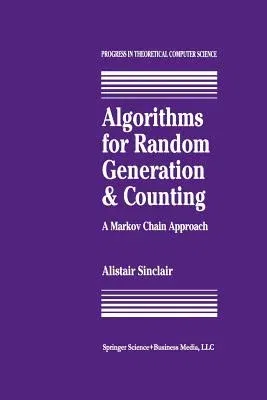A Sinclair
(Author)Algorithms for Random Generation and Counting: A Markov Chain Approach (Softcover Reprint of the Original 1st 1993)Paperback - Softcover Reprint of the Original 1st 1993, 1 November 2012

Qty
1
Turbo
Ships in 2 - 3 days
In Stock
Free Delivery
Cash on Delivery
15 Days
Free Returns
Secure Checkout
Part of Series
Progress in Theoretical Computer Science
Print Length
147 pages
Language
English
Publisher
Birkhauser
Date Published
1 Nov 2012
ISBN-10
1461267072
ISBN-13
9781461267072
Description
Product Details
Author:
Book Edition:
Softcover Reprint of the Original 1st 1993
Book Format:
Paperback
Country of Origin:
NL
Date Published:
1 November 2012
Dimensions:
23.39 x
15.6 x
0.86 cm
ISBN-10:
1461267072
ISBN-13:
9781461267072
Language:
English
Location:
Boston, MA
Pages:
147
Publisher:
Weight:
231.33 gm

